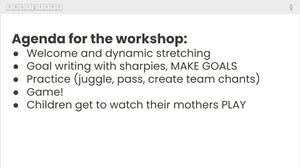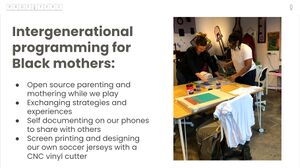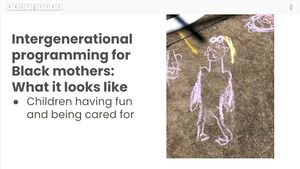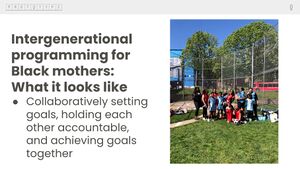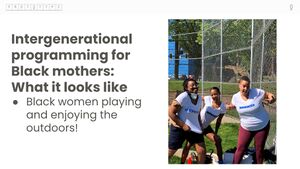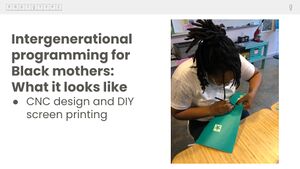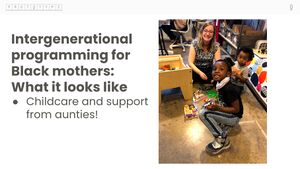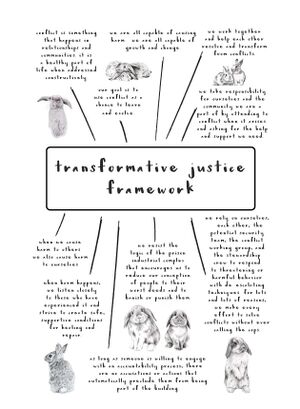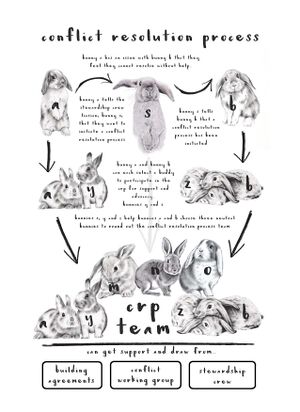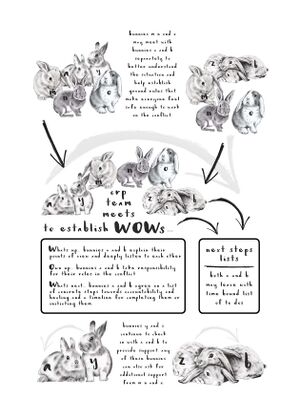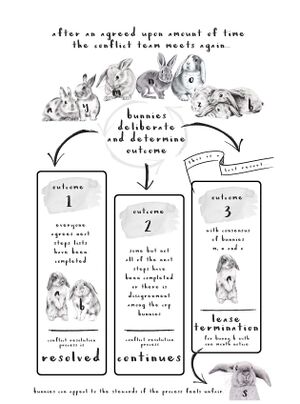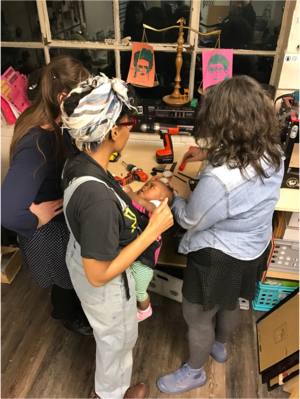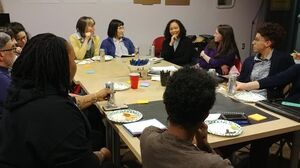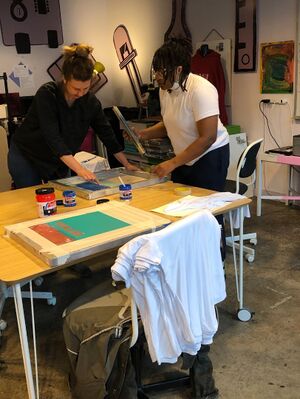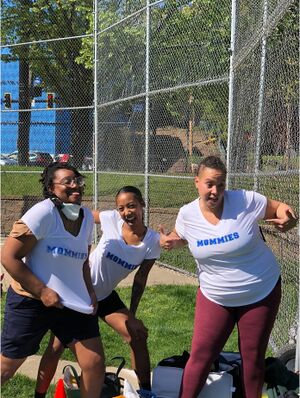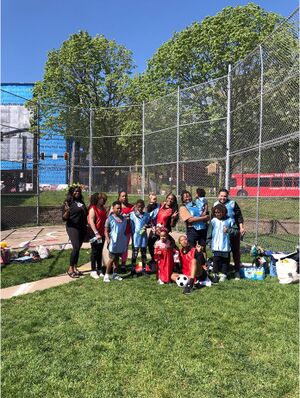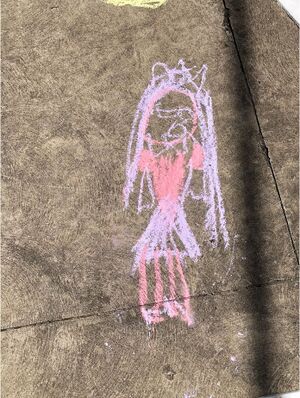|
|
| (59 intermediate revisions by 3 users not shown) |
| Line 1: |
Line 1: |
| <div class="article open-source-parenting layout-2" id="Open-source_Parenting"> | | <div class="article open-source-parenting layout-2" id="Open-source_Parenting"> |
| | <div class="hide-from-website"> |
| | [[File:Prototype-start-slide.jpg|thumb|class=title_image|The workshop and conceptual framework of 'open-source parenting' was developed as part of 'Solarpunk—Who owns the Web?'—a collaborative exploration resulting in a series of intergenerational online and offline workshop formats. Partner organizations were Hackers & Designers in Amsterdam (The Netherlands), Mz* Baltazar’s Laboratory in Vienna (Austria) and Prototype PGH in Pittsburgh (USA). Along with the development of a series of solar punk workshops, the aim was to engage in an active peer exchange and support each other in the process of developing context-sensitive learning formats.]]</div> |
|
| |
|
| [[File:Chalk drawing.jpg|thumb|class=title_image|Chalk drawing from one of the children at the soccer series]] | | <div class="hide-from-book scriptothek"> |
| | [[File:Prototype-slides-1.jpg|thumb|The workshop and conceptual framework of 'open-source parenting' was developed as part of 'Solarpunk—Who owns the Web?'—a collaborative exploration resulting in a series of intergenerational online and offline workshop formats. Partner organizations were Hackers & Designers in Amsterdam (The Netherlands), Mz* Baltazar’s Laboratory in Vienna (Austria) and Prototype PGH in Pittsburgh (USA). Along with the development of a series of solar punk workshops, the aim was to engage in an active peer exchange and support each other in the process of developing context-sensitive learning formats]] |
|
| |
|
| ===Open-source Parenting===
| | [[File:Prototype-slides-2.jpg|thumb|]] |
|
| |
|
| ==== Solarpunks Intergenerational Workshops - Pittsburgh edition ====
| | [[File:Prototype-slides-3.jpg|thumb|]] |
|
| |
|
| <span class="author">Naomi Chambers and Erin Gatz</span>
| | [[File:Prototype-slides-4.jpg|thumb|]] |
|
| |
|
| In the summer of 2022, longtime friends Naomi Chambers and Erin Gatz decided to partner on a summer workshop series in our home of Pittsburgh, Pennsylvania. Naomi was organizing a soccer program series focused on moms and aunties with a focus on Black women. Erin was in conversation with the founders of H&D in Amsterdam as well as Mz Baltazar’s Lab in Vienna about a workshop series they were organizing around the theme of Solarpunk. The solarpunk movement can mean different things to different people but to us it meant exploring open source technologies, providing learning opportunities to the people who are most marginalized in U.S. society, and working toward gender equity and racial justice through our community organizing projects.
| | [[File:Prototype-slides-5.jpg|thumb|]] |
|
| |
|
| | [[File:Prototype-slides-6.jpg|thumb|]] |
|
| |
|
| [[File:Naomi Teaching.png|thumb|Naomi teaching a lamp assemblage workshop at Prototype in 2017 ]] | | [[File:Prototype-slides-7.jpg|thumb|]] |
|
| |
|
| | [[File:Prototype-slides-8.jpg|thumb|]] |
|
| |
|
| We, Naomi and Erin, have been friends for the past ten years but we also have vague memories of attending the same elementary school program for “gifted” children. Once a week, these “gifted” elementary school children from across the city of Pittsburgh would get on buses and be transported to Woolslair Elementary where we would spend the day experimenting with very few rules, a lot of encouragement, and seemingly endless resources and supplies. It might have been here that we first met as eight-year-old girls from different neighborhoods, different racial backgrounds, and a common love for learning. As adults, we reunited at Woolslair Elementary completely by chance when we became robotics teachers in the afterschool program. We were instantly drawn to one another and had an incredible time teaching elementary school students the basics of computer coding, robotics assembly, and circuitry design.
| | [[File:Pages from BloomcraftAgreementswithallAttachments-1.jpg|thumb|Pages from Bloomcraft Agreements, Code of conduct of the Bloomcraft Building, which was founded in 2015 and is where Prototype Pittsburgh is located. One of the "Solarpunk" work sessions focussed on the partner organizations' code of conducts, in which the divergences and similarities of the different contexts of Hackers & Designers, Prototype Pittsburgh and Mz* Baltazhar's Lab were discussed. https://wiki2print.hackersanddesigners.nl/wiki/mediawiki/images/0/00/BloomcraftAgreementswithallAttachments.pdf]] |
|
| |
|
| | [[File:Pages from BloomcraftAgreementswithallAttachments-2.jpg|thumb|]] |
|
| |
|
| [[File:Round table.jpg|thumb|One of the projects Naomi and Erin have worked on together: City as Our Makerspace in 2018, which focused on uplifting Black women through entrepreneurship and makerspace training]] | | [[File:Pages from BloomcraftAgreementswithallAttachments-3.jpg|thumb|]] |
|
| |
|
| | [[File:Pages from BloomcraftAgreementswithallAttachments-4.jpg|thumb|]] |
| | </div> |
|
| |
|
| Over the next few years, we partnered on several projects together including City as Our Makerspace, which was a series of workshops designed to engage Black women in conversations about healing from the effects of intergenerational poverty and trauma; financial planning; makerspace equipment training; and the basics of entrepreneurship. The vision was to equip and empower Black women with the needed skills to become their own advocates, pursue their dreams, and do so with the help of mutual aid. Around the same time as this project, we both became mothers and we currently have five children between the two of us. Our current interests center on community organizing for social justice, supporting parents and children, arts education, and open source technology integration in learning spaces. We are committed to imagining a better future for ourselves, our kids, and future generations where sexism and racism are challenged and systemically eliminated.
| | ===Open-source Parenting=== |
| | <span class="author">Naomi Chambers and Erin Gatz</span> |
| | ==== Solarpunks Intergenerational Workshops—Pittsburgh edition ==== |
| | In the summer of 2022, longtime friends Naomi Chambers and Erin Gatz decided to partner on a summer workshop series in our home of Pittsburgh, Pennsylvania. Naomi was organizing a soccer program series focused on moms and aunties with a focus on Black women. Erin was in conversation with the founders of H&D in Amsterdam as well as Mz* Baltazar’s Lab in Vienna about a workshop series they were organizing around the theme of Solarpunk. The [[#Solarpunk_Postscript|solarpunk movement]] can mean different things to different people but to us it meant exploring open-source technologies, providing learning opportunities to the people who are most marginalized in U.S. society, and working toward gender equity and racial justice through our [[#Cooperative_gaming|community organizing projects]]. |
|
| |
|
| Toward this vision, we decided to incorporate Naomi’s soccer workshops into the solarpunk work being done in Amsterdam and Vienna, to create an international conversation about how Black women in Pittsburgh are creating a better future for themselves and how allies can support them in this work. The need for Naomi’s soccer series arose from the fact that Pittsburgh is one of the most unlivable cities for Black women in the United States. For example, Black Pittsburgh women have higher percentages of unemployment than Black women in ninety-seven percent of other peer cities (Pittsburgh Gender Equity Commission Report, 2020). According to the same report, Pittsburgh refers more Black girls to police than is true for ninety-nine percent of similar cities. The sexism and racism that Black women in Pittsburgh experience on a daily basis is unparalleled compared to most other U.S. cities. This is the context in which we find ourselves and we wanted to change the narrative. About the soccer workshop series, Naomi says: | | We, Naomi and Erin, have been friends for the past ten years but we also have vague memories of attending the same elementary school program for “gifted” children. Once a week, these “gifted” elementary school children from across the city of Pittsburgh would get on buses and be transported to Woolslair Elementary where we would spend the day experimenting with very few rules, a lot of encouragement, and seemingly endless resources and supplies. It might have been here that we first met as eight-year-old girls from different neighborhoods, different racial backgrounds, and a common love for learning. As adults, we reunited at Woolslair Elementary completely by chance when we became robotics teachers in the afterschool program. We were instantly drawn to one another and had an incredible time teaching elementary school students the basics of computer coding, robotics assembly, and [[#Interfacial-Workouts|circuitry design]]. |
| | <div class="visual-footnote img"> |
| | [[File:Naomi Teaching.png|thumb|Naomi teaching a lamp assemblage workshop at Prototype in 2017 ]] |
| | </div> |
| | Over the next few years, we partnered on several projects together including City as Our Makerspace, which was a series of workshops designed to engage Black women in conversations about healing from the effects of intergenerational poverty and trauma; financial planning; makerspace equipment training; and the basics of entrepreneurship. The vision was to equip and [[#Critical_Coding_Cookbook|empower]] Black women with the needed skills to become their own advocates, pursue their dreams, and do so with the help of [[#Gerwani_and_Api_Kartini._Indonesian_Womens_Movement|mutual aid]]. Around the same time as this project, we both became mothers and we currently have five children between the two of us. Our current interests center on community organizing for social justice, supporting parents and children, arts education, and open-source technology integration in learning spaces. We are committed to imagining a better future for ourselves, our kids, and future generations where sexism and racism are challenged and systemically eliminated. |
| | <div class="visual-footnote img"> |
| | [[File:Round table.jpg|thumb|One of the projects Naomi and Erin have worked on together: City as Our Makerspace in 2018, which focused on uplifting Black women through entrepreneurship and makerspace training]] |
| | </div> |
| | Toward this vision, we decided to incorporate Naomi’s soccer workshops into the [[#Mud_Batteries|solarpunk work being done in Amsterdam and Vienna]], to create an international conversation about how Black women in Pittsburgh are creating a better future for themselves and how allies can support them in this work. The need for Naomi’s soccer series arose from the fact that Pittsburgh is one of the most unlivable cities for Black women in the United States. For example, Black Pittsburgh women have higher percentages of unemployment than Black women in ninety-seven percent of other peer cities (Pittsburgh Gender Equity Commission Report, 2020). According to the same report, Pittsburgh refers more Black girls to police than is true for ninety-nine percent of similar cities. The sexism and racism that Black women in Pittsburgh experience on a daily basis is unparalleled compared to most other U.S. cities. This is the context in which we find ourselves and we wanted to change the narrative. About the soccer workshop series, Naomi says: |
|
| |
|
| <blockquote>“''It started as a need for me to get active and reclaim my physical strength and stamina. I was also in dire need of sisterhood with other Black mothers who I feel I shared a unique experience with and wanted to play with my friends and other community members that I felt could benefit as well.”'' | | <blockquote>“It started as a need for me to get active and reclaim my physical strength and stamina. I was also in dire need of sisterhood with other Black mothers who I feel I shared a unique experience with and wanted to play with my friends and other community members that I felt could benefit as well.” |
| </blockquote> | | </blockquote> |
|
| |
|
| The main purpose of the soccer workshops was to have fun, examine how our bodies and minds felt while we played, to build goals together, and care for each other. Held over the course of several Sundays at a local soccer field in Pittsburgh, dozens of Black mothers and aunties came together under Naomi’s coaching and went through a series of exercises before playing a soccer game together. As part of the warm-up routine, Naomi had each woman write their goals in permanent marker on their soccer balls and then take turns kicking their goals into the net. It was a powerful exercise that helped women to identify their goals, work together to make them happen, and celebrate one another along the way. | | The main purpose of the soccer workshops was to have fun, examine how our bodies and minds felt while we played, to build goals together, and care for each other. Held over the course of several Sundays at a local soccer field in Pittsburgh, dozens of Black mothers and aunties came together under Naomi’s coaching and went through a series of exercises before playing a soccer game together. As part of the warm-up routine, Naomi had each woman write their goals in permanent marker on their soccer balls and then take turns kicking their goals into the net. It was a powerful exercise that helped women to identify their goals, work together to make them happen, and celebrate one another along the way. |
| | | <div class="visual-footnote img"> |
| | |
| [[File:Making stuff.jpg|thumb|Erin and Naomi screen printing soccer jerseys in summer 2022]] | | [[File:Making stuff.jpg|thumb|Erin and Naomi screen printing soccer jerseys in summer 2022]] |
| | | </div> |
| | |
| As part of the soccer series, we created soccer jerseys in vector design software, cut the designs on a computer numerically controlled (CNC) vinyl cutter, and then adhered the vinyl sticker stencils onto screens for screen-printing. This DIY approach to screen printing is much more affordable and accessible than traditional screen printing that requires access to a dark room and photo emulsion chemicals. Together we screen printed several soccer jerseys for the moms to wear as well as several for the aunties to wear. The idea is that everybody wins because we are all supporting one another. | | As part of the soccer series, we created soccer jerseys in vector design software, cut the designs on a computer numerically controlled (CNC) vinyl cutter, and then adhered the vinyl sticker stencils onto screens for screen-printing. This DIY approach to screen printing is much more affordable and accessible than traditional screen printing that requires access to a dark room and photo emulsion chemicals. Together we screen printed several soccer jerseys for the moms to wear as well as several for the aunties to wear. The idea is that everybody wins because we are all supporting one another. |
| | | <div class="visual-footnote img"> |
| [[File:Soccer mommies.jpg|thumb|Soccer mommies wearing their soccer jerseys]] | | [[File:Soccer mommies.jpg|thumb|Soccer mommies wearing their soccer jerseys]] |
| | | </div> |
| During our conversations with organizers in Amsterdam and Vienna, we talked about pod mapping, an exercise where individuals identify the people in their lives who they can rely on for mutual aid. About the pod mapping exercise, Naomi says: | | During our conversations with organizers in Amsterdam and Vienna, we talked about pod mapping, an exercise where individuals identify the people in their lives who they can rely on for mutual aid. About the pod mapping exercise, Naomi says: |
|
| |
|
| <blockquote>“''I literally heard of pod mapping from the solarpunk meetings and it had a profound impact on me. It's something we all do in one way or another, but I never thought to formally do it on paper and take account of who/what is my support system and how do I make it count more and stand for others in a more meaningful way.”'' | | <blockquote>“I literally heard of pod mapping from the [[#Am_I_a_hacker_now?|solarpunk meetings]] and it had a profound impact on me. It's something we all do in one way or another, but I never thought to formally do it on paper and take account of who/what is my support system and how do I make it count more and stand for others in a more meaningful way.”</blockquote> |
| </blockquote> | |
| | |
| | |
| As part of the soccer series, we challenged ourselves to connect the theme of supporting Black moms and aunties in Pittsburgh to solar punks in Amsterdam and Vienna. In other words we, Naomi and Erin, were frequently in conversation with one another about how parenting should be a community effort and how the soccer games actually serve as an approach to open source parenting, where moms and aunties are invited to hack our social systems. By playing and discovering together, we find ways to show up for one another, discuss our dreams, and align our goals. As part of this ongoing conversation about how allies can support Black women in Pittsburgh, we decided that providing childcare during the soccer workshops would be an important part of making sure that the workshops were accessible. Erin worked with another white organizer to provide games, snacks, and activities for the children of the soccer moms during the workshops.
| |
| | |
|
| |
|
| | As part of the soccer series, we challenged ourselves to connect the theme of supporting Black moms and aunties in Pittsburgh to solar punks in Amsterdam and Vienna. In other words we, Naomi and Erin, were frequently in conversation with one another about how parenting should be a community effort and how the soccer games actually serve as an approach to open-source parenting, where moms and aunties are invited to hack our social systems. By playing and discovering together, we find ways to show up for one another, discuss our dreams, and align our goals. As part of this ongoing conversation about how allies can support Black women in Pittsburgh, we decided that providing childcare during the soccer workshops would be an important part of making sure that the workshops were accessible. Erin worked with another white organizer to provide games, snacks, and activities for the children of the soccer moms during the workshops. |
| | <div class="visual-footnote img"> |
| [[File:Momies and aunties .jpg|thumb|Mommies, aunties, and children after the soccer game]] | | [[File:Momies and aunties .jpg|thumb|Mommies, aunties, and children after the soccer game]] |
| | | </div> |
| | |
| Providing childcare in any workshop setting is an important part of working toward gender and racial equity. It is also important for allies to show up and help out in whatever way makes sense for them to—whether it is with logistics, communication, or providing food. In the U.S., we live in a society where racism and sexism are entrenched in our social systems and communities. How can Black women and white women work together in ways that disrupt this harmful power dynamic? By reducing the logistical stress of creating events, allies can play an often overlooked but important role in community organizing. The next generation’s future depends on us collaborating across gender, race, and geography to make our society more justice-oriented. | | Providing childcare in any workshop setting is an important part of working toward gender and racial equity. It is also important for allies to show up and help out in whatever way makes sense for them to—whether it is with logistics, communication, or providing food. In the U.S., we live in a society where racism and sexism are entrenched in our social systems and communities. How can Black women and white women work together in ways that disrupt this harmful power dynamic? By reducing the logistical stress of creating events, allies can play an often overlooked but important role in community organizing. The next generation’s future depends on us collaborating across gender, race, and geography to make our society more justice-oriented. |
| | <div class="visual-footnote img"> |
| | [[File:Chalk_drawing.jpg|thumb|Chalk drawing from one of the children at the soccer series]] |
| | </div> |
| | <small> |
| | '''Naomi Chambers''' (Pittsburgh, 1987) is a painter and assemblage sculptor. Growing up in the 90s she enjoyed many free arts programs in the city, which, unbeknownst to her, had an immense effect on her creative growth and critical thinking across all aspects of her life. In 2018, she had her first solo exhibition, ''Communal Futures,'' at August Wilson Center: African American Cultural Center. “I want my work to fill people with love, hope, and wonder like my favorite artists do for me. It’s about the creation of possibilities... new worlds we create for ourselves not solely the one we were born to.” <br> |
|
| |
|
| | | '''Erin Gatz''' (New York City, 1987) is a community organizer, researcher, and non-profit founder dedicated to building gender and racial equity through technology education. She has lived and studied in Canada and the Netherlands and is currently a PhD student at the University of Pittsburgh, where she studies the possibilities and limitations of learning ecosystems such as the Remake Learning network and makerspaces such as Prototype PGH in creating more justice-oriented societies.</small> |
| | |
| | |
| Naomi Chambers (Pittsburgh, 1987) is a painter and assemblage sculptor. Growing up in the 90s she enjoyed many free arts programs in the city, which, unbeknownst to her, had an immense effect on her creative growth and critical thinking across all aspects of her life. In 2018, she had her first solo exhibition, ''Communal Futures,'' at August Wilson Center: African American Cultural Center. “I want my work to fill people with love, hope, and wonder like my favorite artists do for me. It’s about the creation of possibilities. . . new worlds we create for ourselves not solely the one we were born to.”
| |
| | |
| Erin Gatz (New York City, 1987) is a community organizer, researcher, and non-profit founder dedicated to building gender and racial equity through technology education. She has lived and studied in Canada and the Netherlands and is currently a PhD student at the University of Pittsburgh, where she studies the possibilities and limitations of learning ecosystems such as the Remake Learning network and makerspaces such as Prototype PGH in creating more justice-oriented societies. | |
| | |
| | |
| </div> | | </div> |
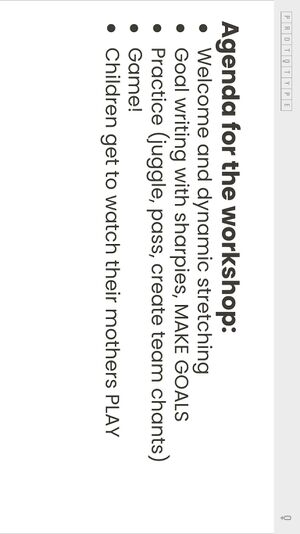
The workshop and conceptual framework of 'open-source parenting' was developed as part of 'Solarpunk—Who owns the Web?'—a collaborative exploration resulting in a series of intergenerational online and offline workshop formats. Partner organizations were Hackers & Designers in Amsterdam (The Netherlands), Mz* Baltazar’s Laboratory in Vienna (Austria) and Prototype PGH in Pittsburgh (USA). Along with the development of a series of solar punk workshops, the aim was to engage in an active peer exchange and support each other in the process of developing context-sensitive learning formats.
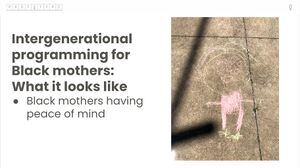
The workshop and conceptual framework of 'open-source parenting' was developed as part of 'Solarpunk—Who owns the Web?'—a collaborative exploration resulting in a series of intergenerational online and offline workshop formats. Partner organizations were Hackers & Designers in Amsterdam (The Netherlands), Mz* Baltazar’s Laboratory in Vienna (Austria) and Prototype PGH in Pittsburgh (USA). Along with the development of a series of solar punk workshops, the aim was to engage in an active peer exchange and support each other in the process of developing context-sensitive learning formats
Open-source Parenting
Naomi Chambers and Erin Gatz
Solarpunks Intergenerational Workshops—Pittsburgh edition
In the summer of 2022, longtime friends Naomi Chambers and Erin Gatz decided to partner on a summer workshop series in our home of Pittsburgh, Pennsylvania. Naomi was organizing a soccer program series focused on moms and aunties with a focus on Black women. Erin was in conversation with the founders of H&D in Amsterdam as well as Mz* Baltazar’s Lab in Vienna about a workshop series they were organizing around the theme of Solarpunk. The solarpunk movement can mean different things to different people but to us it meant exploring open-source technologies, providing learning opportunities to the people who are most marginalized in U.S. society, and working toward gender equity and racial justice through our community organizing projects.
We, Naomi and Erin, have been friends for the past ten years but we also have vague memories of attending the same elementary school program for “gifted” children. Once a week, these “gifted” elementary school children from across the city of Pittsburgh would get on buses and be transported to Woolslair Elementary where we would spend the day experimenting with very few rules, a lot of encouragement, and seemingly endless resources and supplies. It might have been here that we first met as eight-year-old girls from different neighborhoods, different racial backgrounds, and a common love for learning. As adults, we reunited at Woolslair Elementary completely by chance when we became robotics teachers in the afterschool program. We were instantly drawn to one another and had an incredible time teaching elementary school students the basics of computer coding, robotics assembly, and circuitry design.
Over the next few years, we partnered on several projects together including City as Our Makerspace, which was a series of workshops designed to engage Black women in conversations about healing from the effects of intergenerational poverty and trauma; financial planning; makerspace equipment training; and the basics of entrepreneurship. The vision was to equip and empower Black women with the needed skills to become their own advocates, pursue their dreams, and do so with the help of mutual aid. Around the same time as this project, we both became mothers and we currently have five children between the two of us. Our current interests center on community organizing for social justice, supporting parents and children, arts education, and open-source technology integration in learning spaces. We are committed to imagining a better future for ourselves, our kids, and future generations where sexism and racism are challenged and systemically eliminated.
Toward this vision, we decided to incorporate Naomi’s soccer workshops into the solarpunk work being done in Amsterdam and Vienna, to create an international conversation about how Black women in Pittsburgh are creating a better future for themselves and how allies can support them in this work. The need for Naomi’s soccer series arose from the fact that Pittsburgh is one of the most unlivable cities for Black women in the United States. For example, Black Pittsburgh women have higher percentages of unemployment than Black women in ninety-seven percent of other peer cities (Pittsburgh Gender Equity Commission Report, 2020). According to the same report, Pittsburgh refers more Black girls to police than is true for ninety-nine percent of similar cities. The sexism and racism that Black women in Pittsburgh experience on a daily basis is unparalleled compared to most other U.S. cities. This is the context in which we find ourselves and we wanted to change the narrative. About the soccer workshop series, Naomi says:
“It started as a need for me to get active and reclaim my physical strength and stamina. I was also in dire need of sisterhood with other Black mothers who I feel I shared a unique experience with and wanted to play with my friends and other community members that I felt could benefit as well.”
The main purpose of the soccer workshops was to have fun, examine how our bodies and minds felt while we played, to build goals together, and care for each other. Held over the course of several Sundays at a local soccer field in Pittsburgh, dozens of Black mothers and aunties came together under Naomi’s coaching and went through a series of exercises before playing a soccer game together. As part of the warm-up routine, Naomi had each woman write their goals in permanent marker on their soccer balls and then take turns kicking their goals into the net. It was a powerful exercise that helped women to identify their goals, work together to make them happen, and celebrate one another along the way.
As part of the soccer series, we created soccer jerseys in vector design software, cut the designs on a computer numerically controlled (CNC) vinyl cutter, and then adhered the vinyl sticker stencils onto screens for screen-printing. This DIY approach to screen printing is much more affordable and accessible than traditional screen printing that requires access to a dark room and photo emulsion chemicals. Together we screen printed several soccer jerseys for the moms to wear as well as several for the aunties to wear. The idea is that everybody wins because we are all supporting one another.
During our conversations with organizers in Amsterdam and Vienna, we talked about pod mapping, an exercise where individuals identify the people in their lives who they can rely on for mutual aid. About the pod mapping exercise, Naomi says:
“I literally heard of pod mapping from the solarpunk meetings and it had a profound impact on me. It's something we all do in one way or another, but I never thought to formally do it on paper and take account of who/what is my support system and how do I make it count more and stand for others in a more meaningful way.”
As part of the soccer series, we challenged ourselves to connect the theme of supporting Black moms and aunties in Pittsburgh to solar punks in Amsterdam and Vienna. In other words we, Naomi and Erin, were frequently in conversation with one another about how parenting should be a community effort and how the soccer games actually serve as an approach to open-source parenting, where moms and aunties are invited to hack our social systems. By playing and discovering together, we find ways to show up for one another, discuss our dreams, and align our goals. As part of this ongoing conversation about how allies can support Black women in Pittsburgh, we decided that providing childcare during the soccer workshops would be an important part of making sure that the workshops were accessible. Erin worked with another white organizer to provide games, snacks, and activities for the children of the soccer moms during the workshops.
Providing childcare in any workshop setting is an important part of working toward gender and racial equity. It is also important for allies to show up and help out in whatever way makes sense for them to—whether it is with logistics, communication, or providing food. In the U.S., we live in a society where racism and sexism are entrenched in our social systems and communities. How can Black women and white women work together in ways that disrupt this harmful power dynamic? By reducing the logistical stress of creating events, allies can play an often overlooked but important role in community organizing. The next generation’s future depends on us collaborating across gender, race, and geography to make our society more justice-oriented.
Naomi Chambers (Pittsburgh, 1987) is a painter and assemblage sculptor. Growing up in the 90s she enjoyed many free arts programs in the city, which, unbeknownst to her, had an immense effect on her creative growth and critical thinking across all aspects of her life. In 2018, she had her first solo exhibition, Communal Futures, at August Wilson Center: African American Cultural Center. “I want my work to fill people with love, hope, and wonder like my favorite artists do for me. It’s about the creation of possibilities... new worlds we create for ourselves not solely the one we were born to.”
Erin Gatz (New York City, 1987) is a community organizer, researcher, and non-profit founder dedicated to building gender and racial equity through technology education. She has lived and studied in Canada and the Netherlands and is currently a PhD student at the University of Pittsburgh, where she studies the possibilities and limitations of learning ecosystems such as the Remake Learning network and makerspaces such as Prototype PGH in creating more justice-oriented societies.


